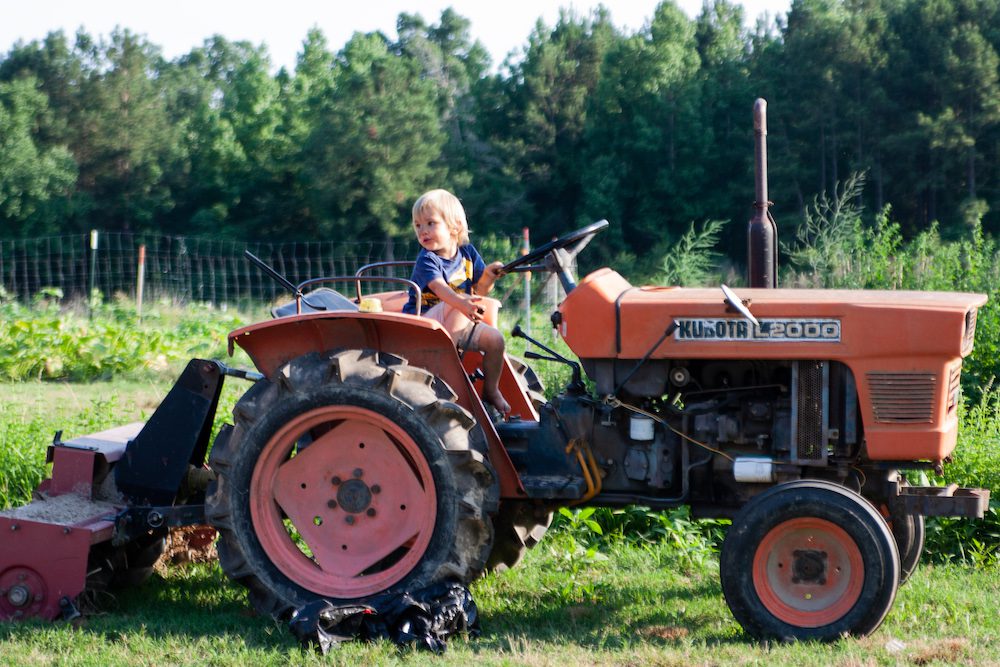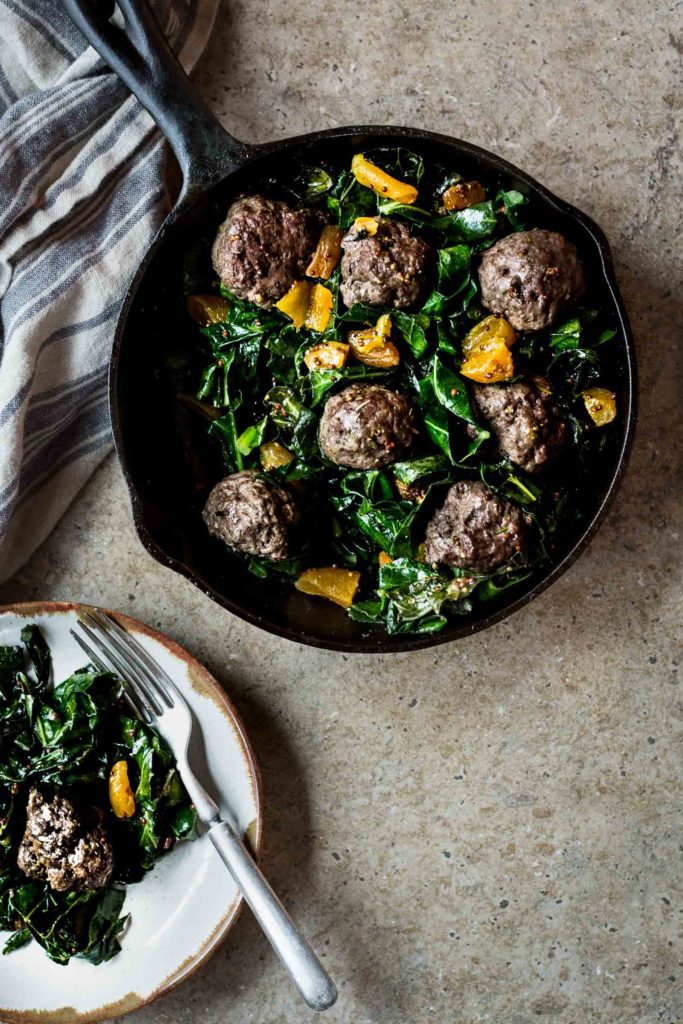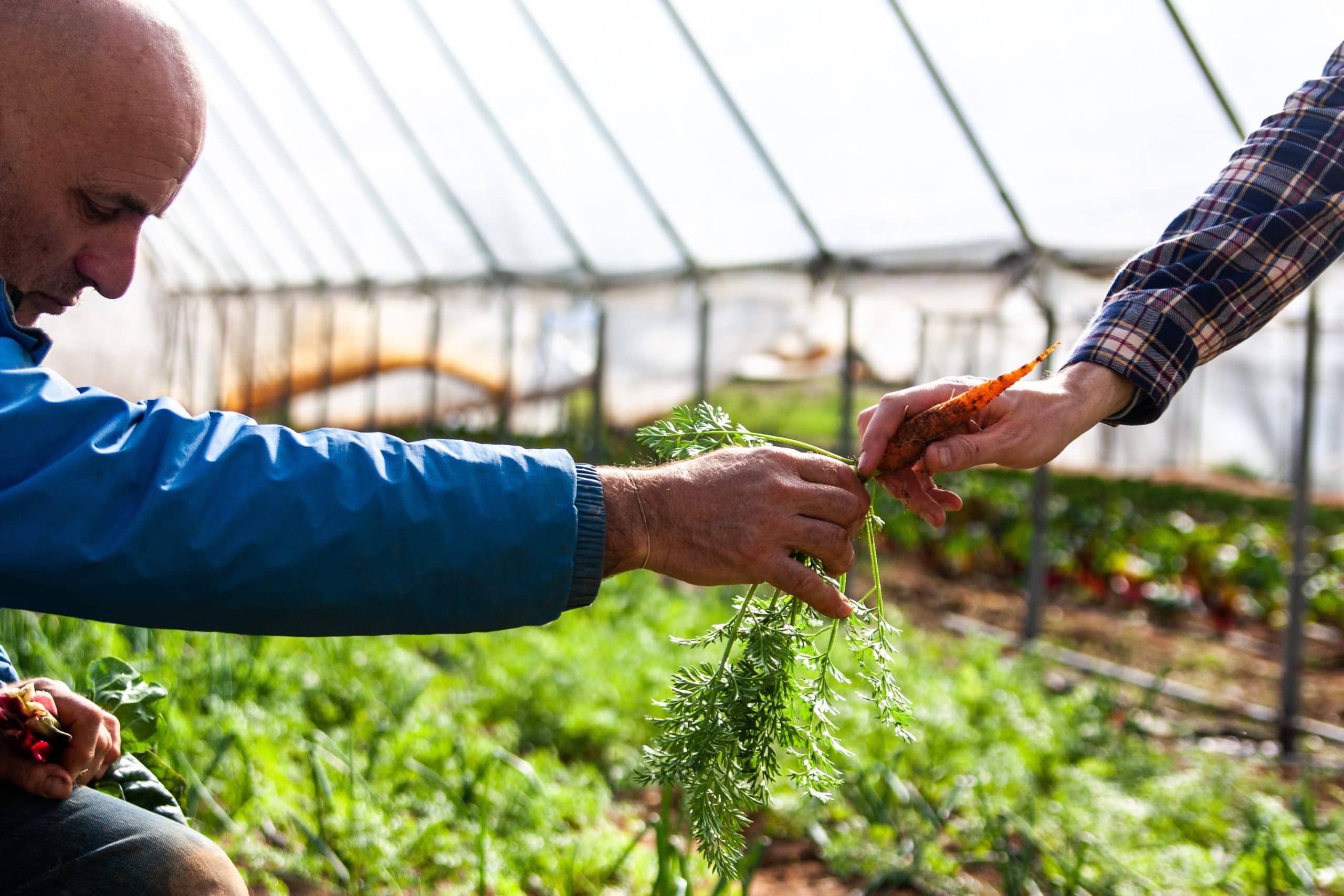Hickory Hill is a 204 acre Certified Organic farm in Comer Georgia run by Garry and Susan Shaw along with their daughter Jennifer Johns and her husband Josh. Josh and Jennifer have three children of their own: Madeline (3.5 years), Levi (2.5 years, pictured above) and Matthew (7 months). Also living on the land are Garry’s parents, Susan’s parents, and a host of pigs, horses, cattle, sheep, dogs and chickens. I caught up with Garry, Josh and one of their farmhands, Matthew, in their barn for a quick interview last week.
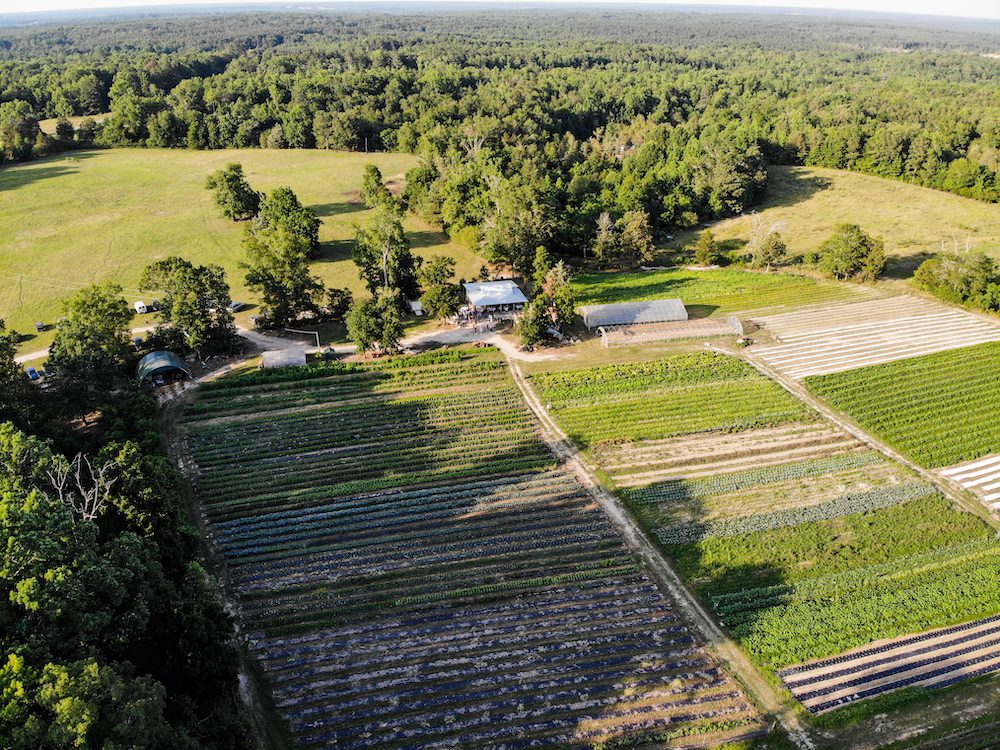
Tell me a little about the history of this land.
Garry: It was a Georgia state land grant awarded to Susan’s family in 1852. From what I understand it was a payment granted to her relative for fighting in the Revolutionary War. She still has the original document in a safety deposit box, complete with a wooden State of Georgia seal. We were given a Centennial Farm Award by the State of Georgia in 2016, which means the land has been farmed continuously by the same family for over 100 years.
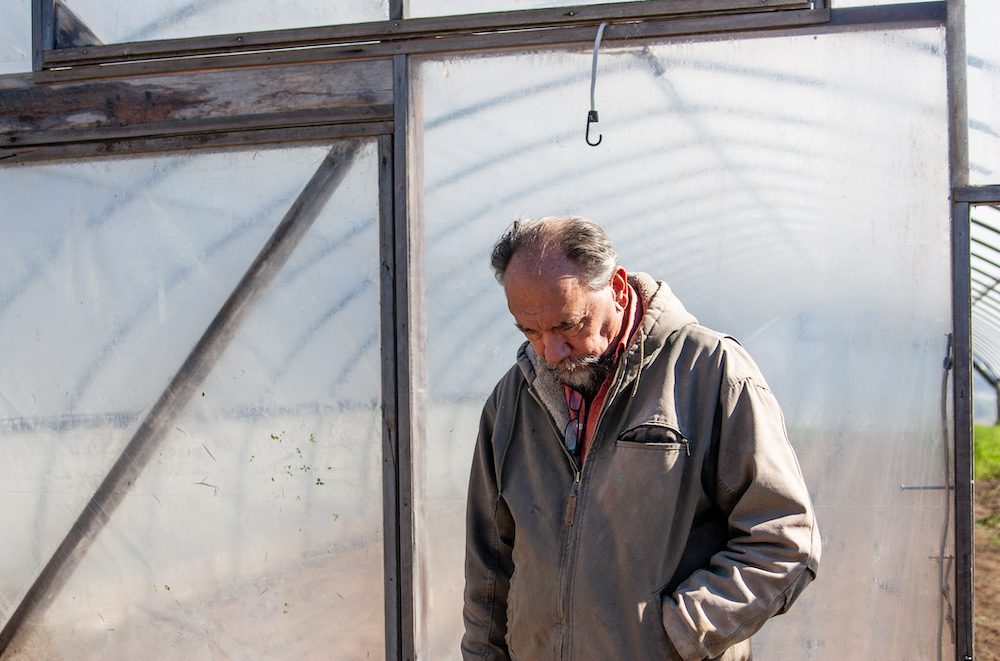
How did you decide to start farming here, Garry?
G: I had a pre-cast concrete business in the early 2000’s. It was tied into the housing boom, and when that crashed there wasn’t enough work to sustain me and my business partner. So in 2008 I moved away from the business. I went to the Athens farmers market around that time and told myself, “I can do this.” Some friends of ours from Brazil were starting a tomato wash facility in Bowersville to sell grape tomatoes to Whole Foods, so we joined them and started growing. The first year we grew two acres of tomatoes. That, along with the Athens Farmers Market, was our start.
Josh, how did you get involved with Hickory Hill?
Josh: I went from being a welder to going to college to becoming a geologist and getting my bachelors in geology. A couple years before I graduated, my in-laws, Garry and Susan approached me about joining the farm. I like to work outside with my hands, so even though I wasn’t exactly sure of the direction I was going, it definitely fit with what I liked.
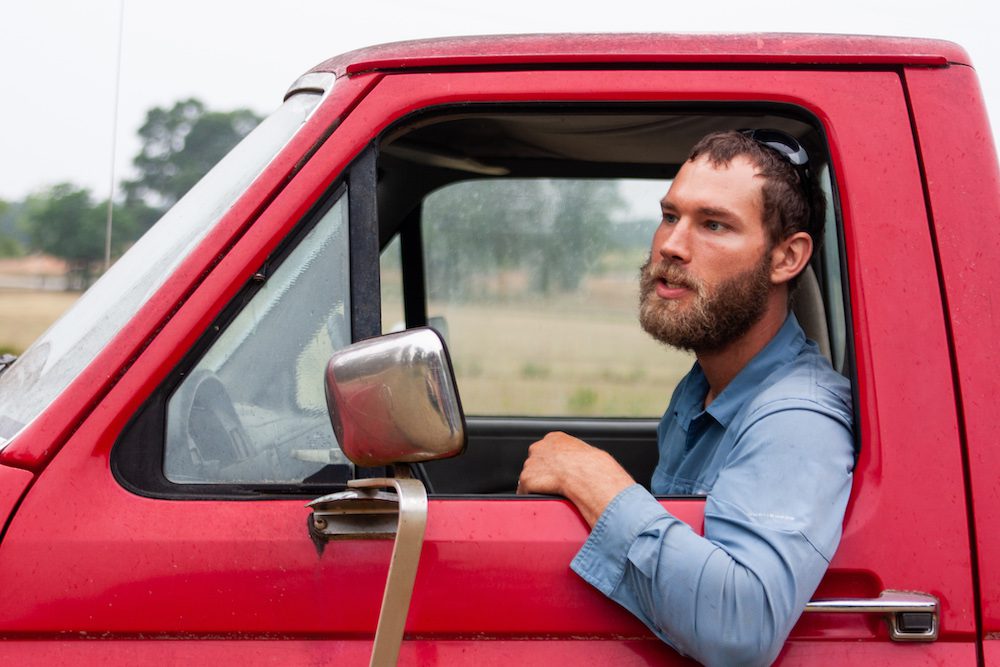
With such little previous farm-experience between the two of you, how’d you learn to farm?
J: Trial and error (laughing)
G: Yep. A lot of it.
J: For me, I’m really a hands on learner. So I try something, see it doesn’t work and then tweak it. I try something different until I find the right combination. It’d take forever if that was the only way, but we also had the farmers at the Athens Farmers market. We don’t view each other as competition. We see each other as working towards the same goal. Ed from Sundance Farm, who was always set up next to me, is one of the oldest farmers at the market. I was constantly bouncing things off him: “What is this?” or “What did I do wrong?” We were always talking about our problems.
Now there’s a couple new farms coming to the Athens Farmers Market and though I still have a lot to learn, I’m kind of on the other side of things now. I’m getting questions about how to do things, and I’m often able to help.
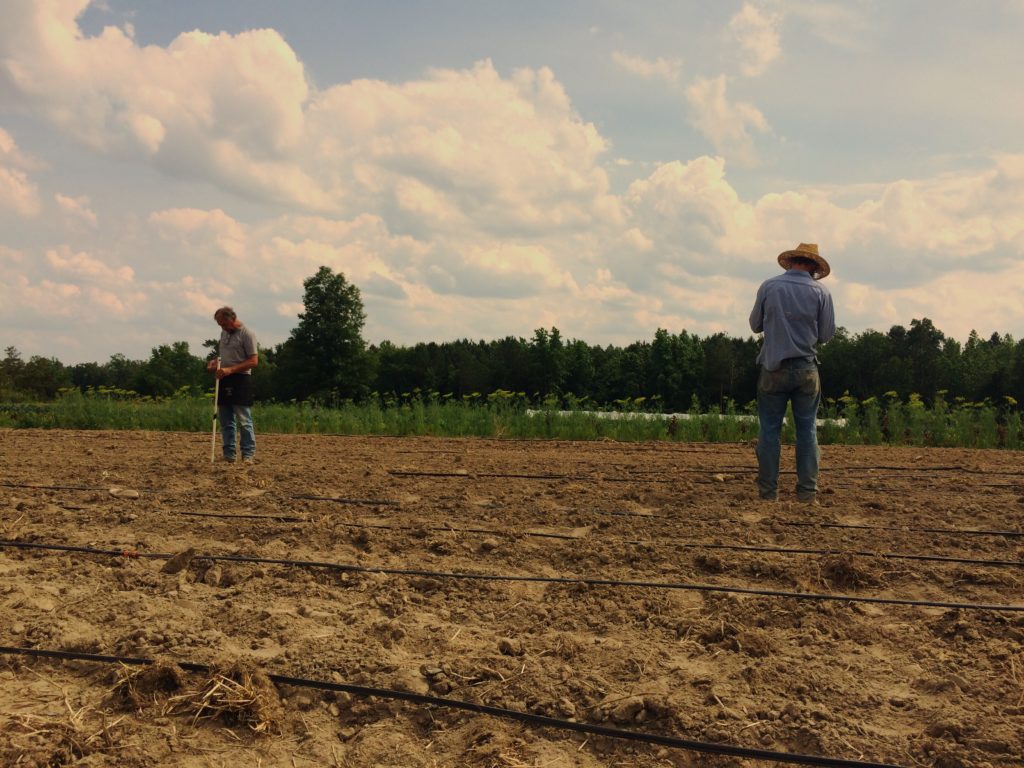
What’s it like working so closely with family?
J: Well, we’re in-laws (chuckles). A lot of people have preconceived ideas about that. Actually a lot of the people who work here don’t get how we do it. For us it’s been great.
G: We’re both Christians. We have a standard that’s not our own for determining what’s right and wrong and how to deal with people. I mean, we’re not perfect at it, but I do know that even though things might not be done the way I would have done them sometimes, we can always work through it. We’re patient with each other, we show kindness and mercy to each other. We’re not just out for ourselves. There’s a bigger picture.
Also, this is going to be Josh and Jennifer’s farm. I don’t know how much longer Susan and I will do this. So I don’t see any advantage in me having to control everything and having things done my way when I’m trying to hand it off to them.

What’s the work-life balance look like at Hickory Hill Farm?
G: We pretty much knock off at four o’clock in the afternoon and everybody goes home to be with their family. We don’t do the 12-14 hour day. I don’t know if that’s good or bad, business-wise, but I know some farms that will just work until a thing is finished. We typically don’t do that. I think it’s important for people to have some down time.
J: Obviously we’ve got to be efficient and get things done, but I don’t want to be miserable. It’s not a mandatory thing, but we always eat together at lunch. Anyone is welcome to come to the house and spend time together. Everybody is relaxed and open to talk about life, faith, politics, or whatever.
G: Hickory Hill is really about family and faith. That’s what’s important to us. We want everybody here to feel like they’re part of the family.
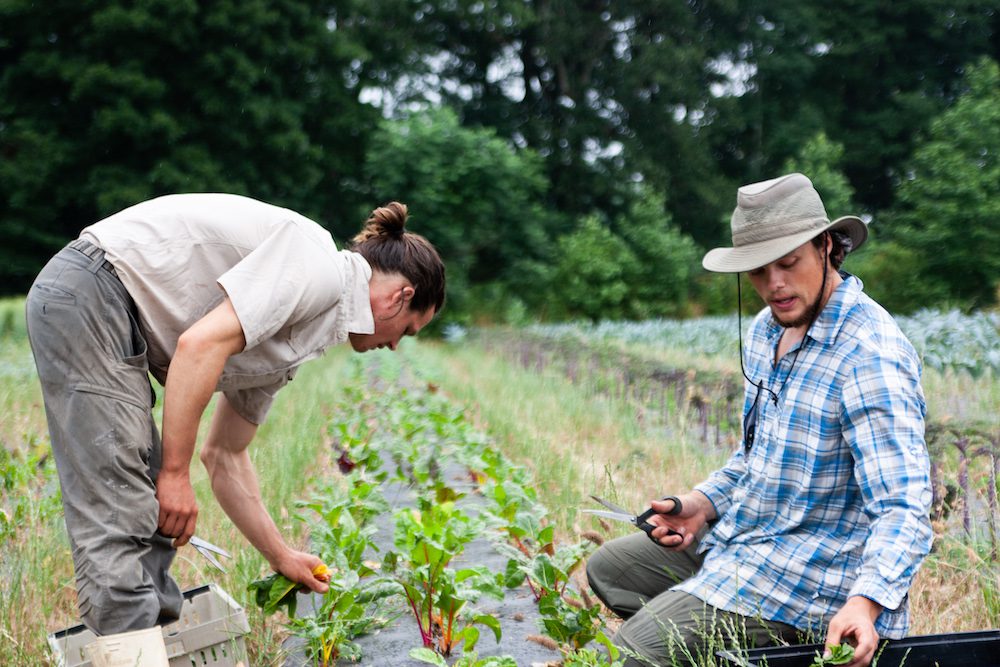
How do you feel about summertime on the farm?
J: I’m sure Garry’s heard me saying this a lot lately: “Ahh it’s about to be here…it’s about to be here.” Things just get so busy, time flies so fast and before you know it, fall is here. We are full-time year round, but definitely busiest in the summer. By the time we hit August we are very tired.
Any particular produce you’re looking forward to getting to FH customers this summer?
J: Among other things, we are really looking forward to getting you guys our shishito peppers and Italian eggplant. I also like the idea of introducing people to things that they’ve never experienced before. We recently sold Fresh Harvest a thousand kohlrabi, and I got to thinking that out of those thousand produce boxes, let’s say it’s a thousand families, maybe half of them have never had a kohlrabi before. They’re getting exposed to something new and will perhaps find a new vegetable they like this summer.
What do you say to a FH customer who is on the fence about whether they’ll continue to get a produce basket over the summer?
J: I would say that your support keeps us going; it keeps our family going; it keeps our employee’s families going. We have four full-time people we employee. So by purchasing this local produce, you’re not only supporting the local food movement, but half a dozen families as well.
G: And the summer is a special time as far as what’s available. You’re not going to get local peppers and eggplants and tomatoes any other time. Take advantage of those crops that aren’t around during other parts of the year!
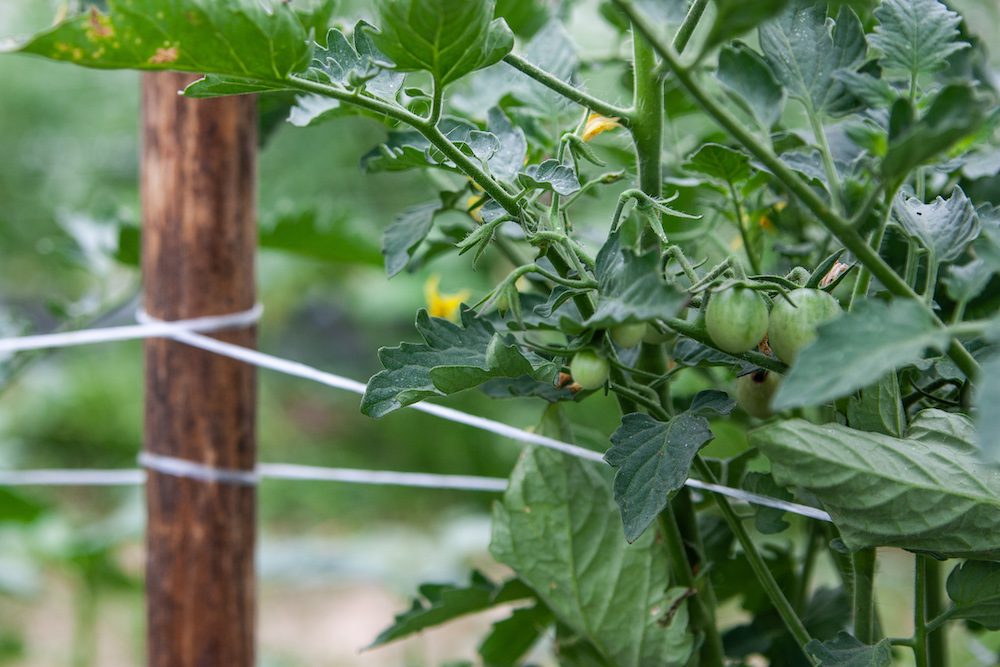
What do FH customers mean to Hickory Hill?
G: Fresh Harvest allows us to grow and sell larger amounts of produce. We often sell a crop in the markets until it reaches its peak, then we call Fresh Harvest and sell huge quantities of it. Because of Fresh Harvest, we plant a whole lot more tomatoes than we would normally plant. It’s a lot like the kohlrabi example.
J: We grow things specifically for you guys, but you’re also there to help us when we unexpectedly have too much of something. It’d be hard to sell the amounts you’ll take from us in any other market. Fresh Harvest customers make that possible.
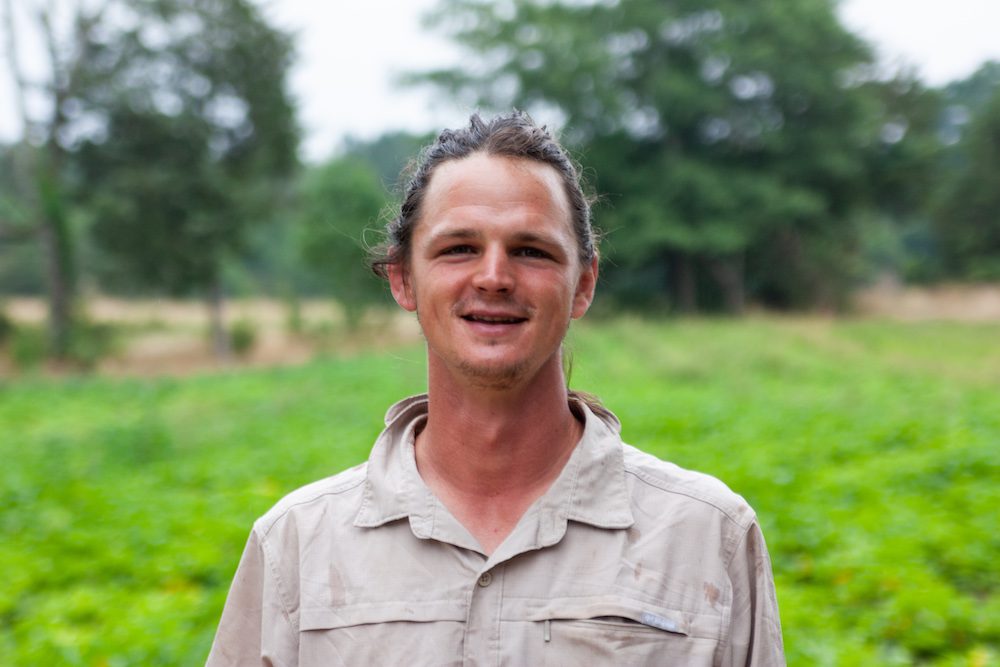
Matthew, as an outsider who has worked on a lot of farms, what makes Hickory Hill different in your opinion?
Matthew: For one, you just don’t make a lot of money farming, so they aren’t living lavishly and they work really hard. But i also find it small and very family oriented out here. You have Garry’s parents and Susan’s parents living here. Then Jennifer and Josh and their kids. You’ve got this whole family together, which I feel like you just don’t see anymore. When we eat lunch, we all eat lunch together. It’s very tight knit in that regard. And I think that’s what makes Hickory Hill a lot different from anywhere I’ve experienced before. That structure of family really makes this place stand out.
